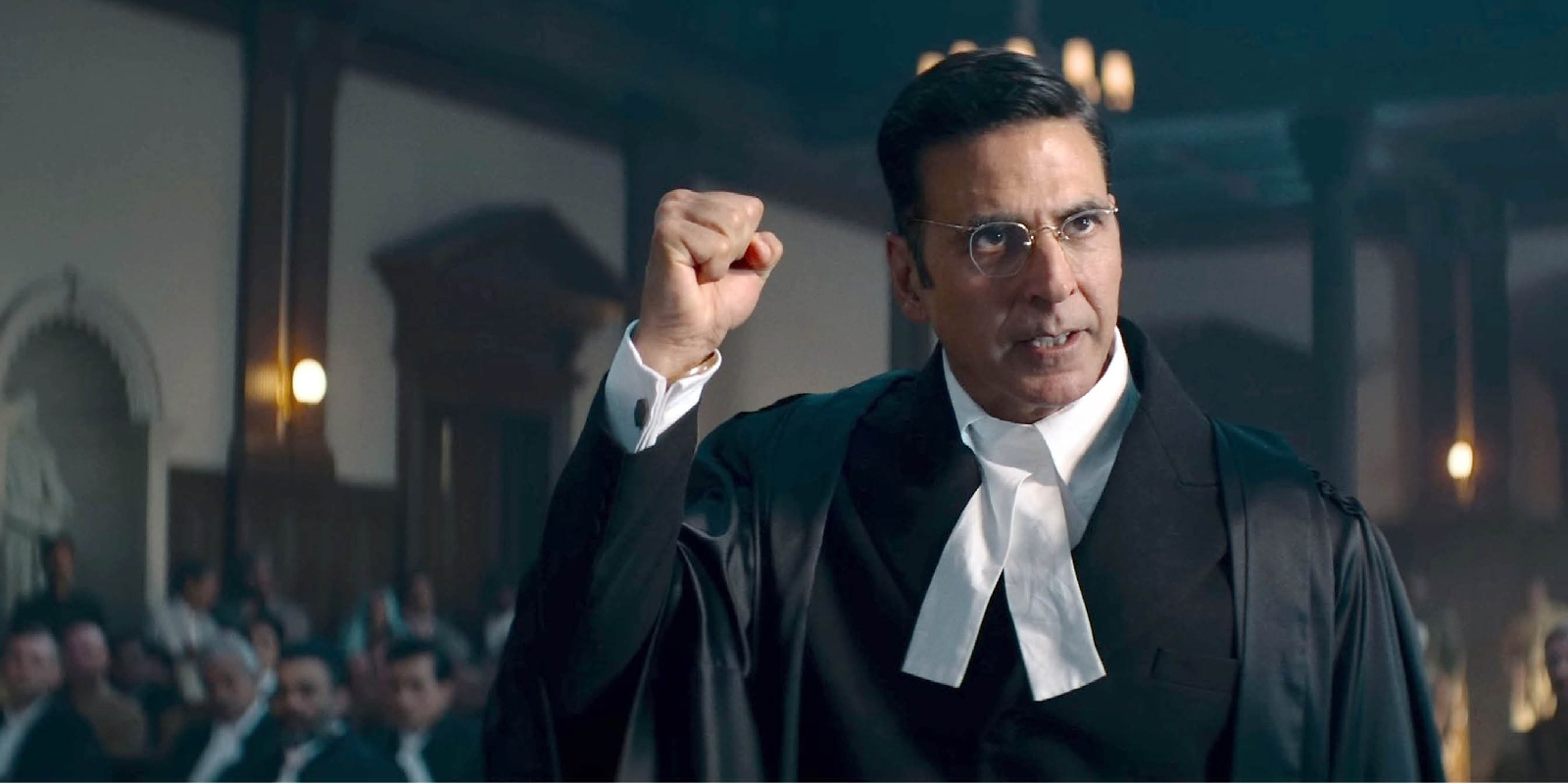'Kesari Chapter 2' review: Akshay Kumar headlines a conflicted tale of patriotism and protest
Karan Singh Tyagi’s Kesari Chapter 2 is a curious entry in India’s growing catalogue of period dramas with nationalist overtones. Drawing inspiration from The Case That Shook The Nation — a 2019 book chronicling lawyer C. Sankaran Nair’s unprecedented legal crusade against the British Empire following the Jallianwala Bagh massacre — the film is as ambitious in scope as it is inconsistent in voice.
Kesari Chapter 2
At the heart of the story is Nair (Akshay Kumar), whose journey from a knighted loyalist to a defiant rebel forms the film’s spine. But this is no straightforward biopic. Rather, it’s a cinematic cocktail that attempts to combine old-school patriotism with the defiant spirit of new-age political resistance. It speaks the language of rebellion but wears the costume of a commercial blockbuster.
Director: Karan Singh Tyagi
Writers: Karan Singh Tyagi, Amritpal Singh Bindra, Sumit Saxena
Cast: Akshay Kumar, R. Madhavan, Ananya Panday, Simon Paisley Day, Regina Cassandra, Amit Sial, Mark Bennington, Alexx O’Nell
Language: Hindi
Therein lies its contradiction.
A Trojan Horse of a Film
Kesari Chapter 2 positions itself as a Trojan horse — inviting audiences with the promise of a rousing patriotic spectacle but slipping in commentary on censorship, state oppression, and moral accountability. In theory, it's a clever trick. In practice, the execution is so buried under formulaic filmmaking that the message becomes muddled.
There’s no shortage of powerful themes: institutional complicity, manipulated media, colonial brutality, and a courtroom war for truth. But instead of exploring these with nuance, the film delivers them through an overproduced lens — swelling background scores, slow-motion entries, and dramatic close-ups.
Nair’s evolution is portrayed less as an ideological awakening and more as a movie star transformation. He starts off parroting imperial rhetoric and ends up yelling “Get the f*ck out of my country” in a grand courtroom moment designed more for applause than reflection.
Kumar Plays Nair Playing Kumar
Akshay Kumar’s portrayal of Nair is steeped in his established screen persona: unflappable, witty, and always a few steps ahead. The film positions him as a lone warrior against a deeply rigged system, but his characterization remains too slick, too heroic to feel human. Every courtroom entry is shot like a superhero’s arrival. Every legal argument is a declaration of war.
The supporting cast adds layers — especially Ananya Panday as a spirited young lawyer unafraid to challenge Nair’s past complacency, and R. Madhavan as the cynical defense counsel who turns the courtroom into a stage for ideological sparring. But even these performances often get lost in the film’s eagerness to turn history into spectacle.
Politics Without Precision
Kesari Chapter 2 wants to be both massy and meaningful — a difficult balance, especially in today’s political climate. The screenplay gestures toward a critique of authoritarianism and a plea for moral resistance, but often undermines itself with its over-reliance on tropes and theatrics.
There are moments of promise — including a chilling recreation of the Jallianwala Bagh massacre and scenes that evoke echoes of Sardar Udham — but these are fleeting. Ultimately, the tragedy becomes a backdrop for a morality play in which nuance is sacrificed for clarity, and clarity for noise.
A Film That Pokes, But Rarely Reflects
By the end, Kesari Chapter 2 joins the ranks of recent films that aim to provoke a sense of nationalistic anger rather than introspection. It asks, in essence: Are you Indian enough if you’re not angry? But in asking that question, it forgets to explore what being Indian actually means — especially in a story about a man who stood for reason, evidence, and the courage to dissent.
It’s a film full of intent but lacking in introspection. A courtroom drama that delivers verdicts without allowing space for deliberation. You don’t just watch Kesari Chapter 2 — you watch through it, searching for the film it almost was.











Comments
Post a Comment